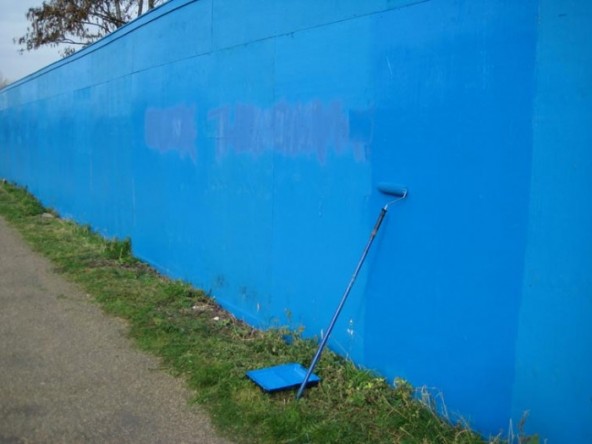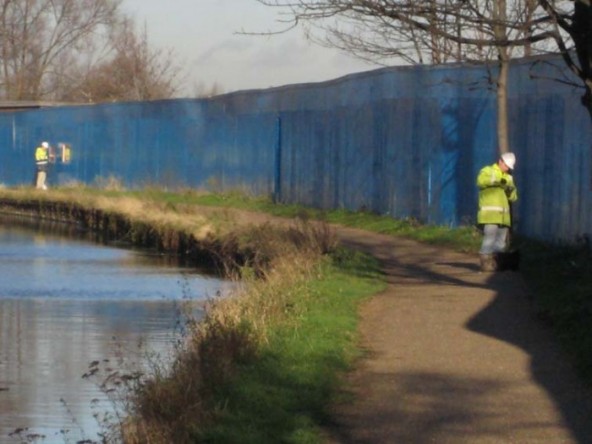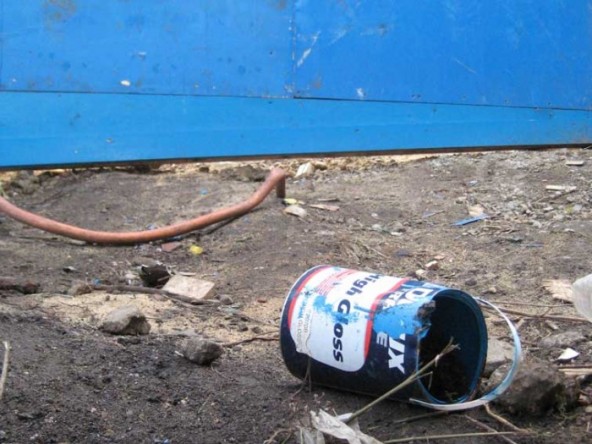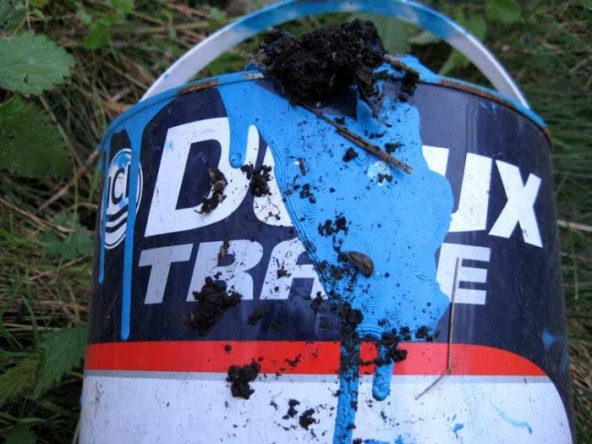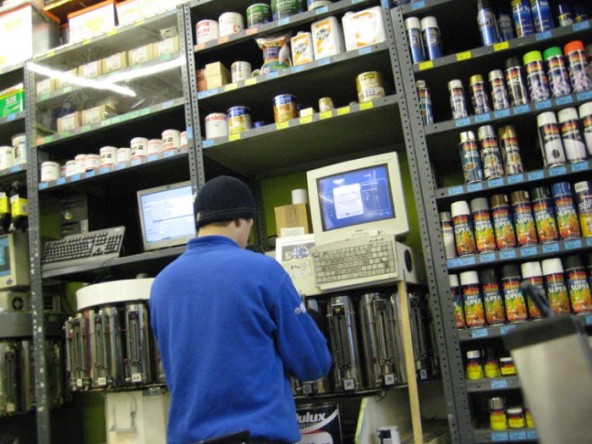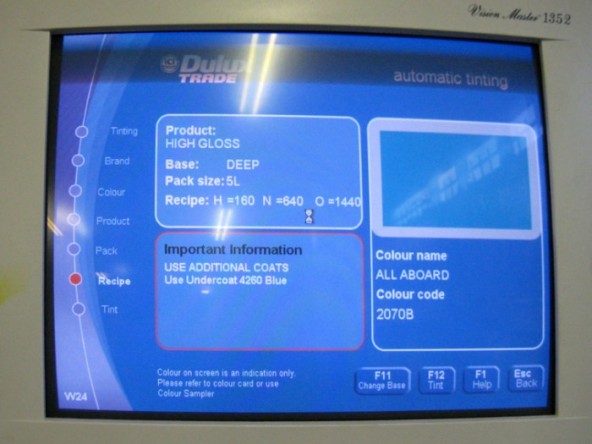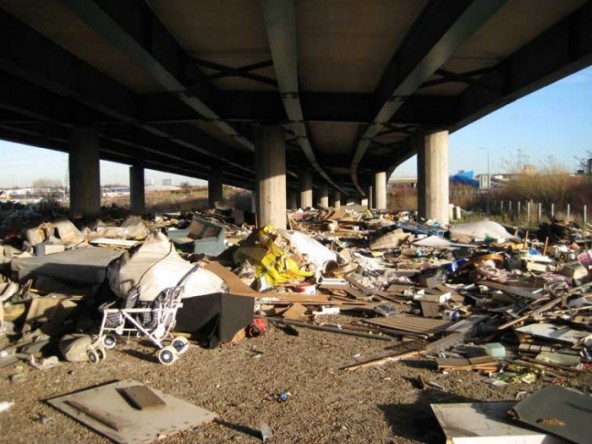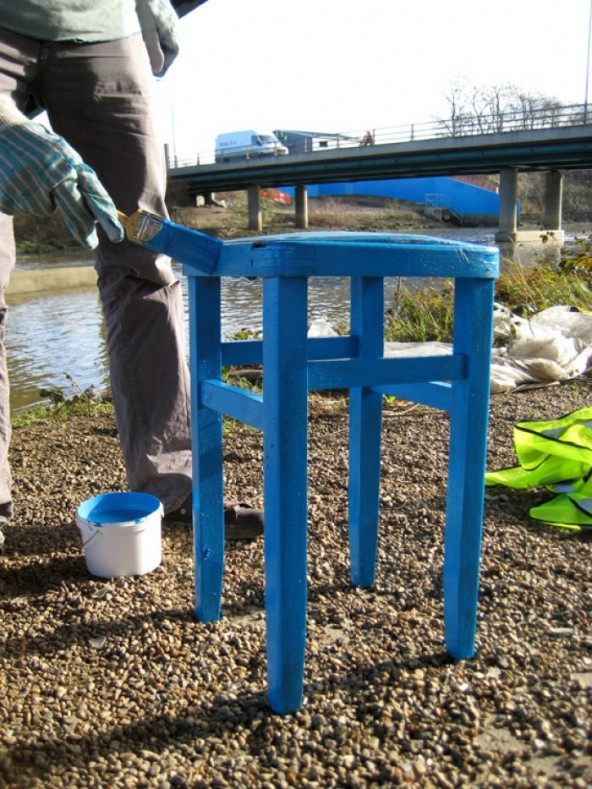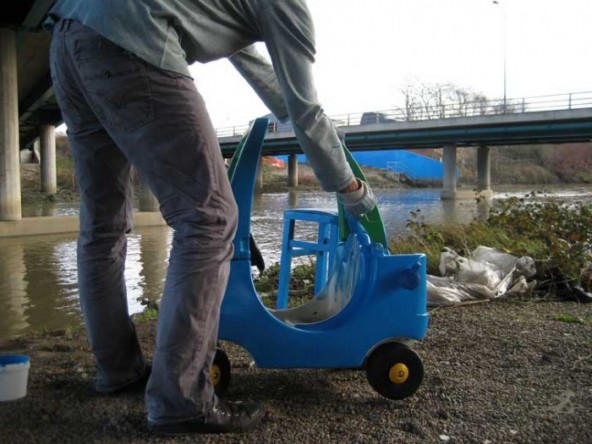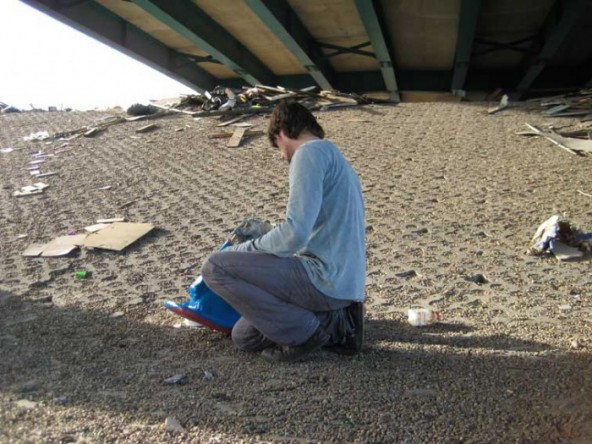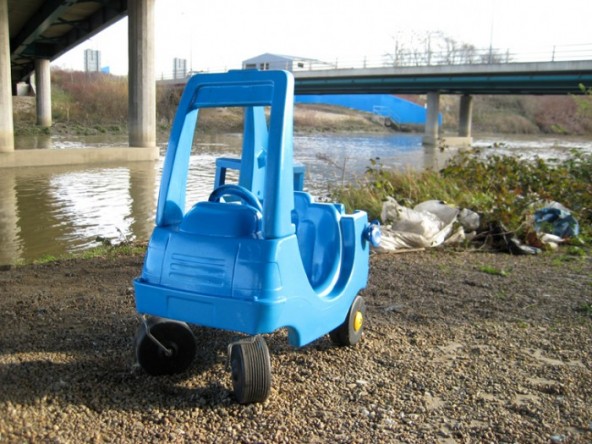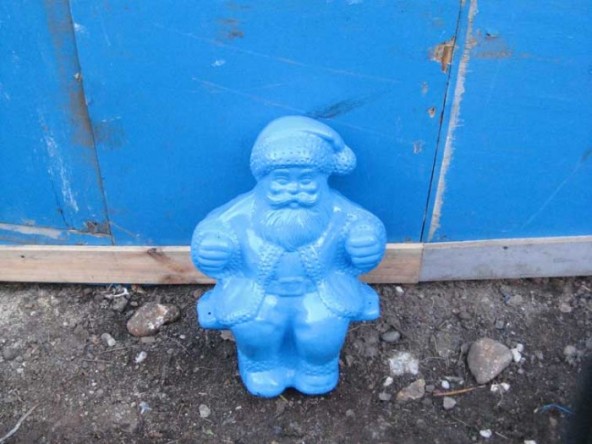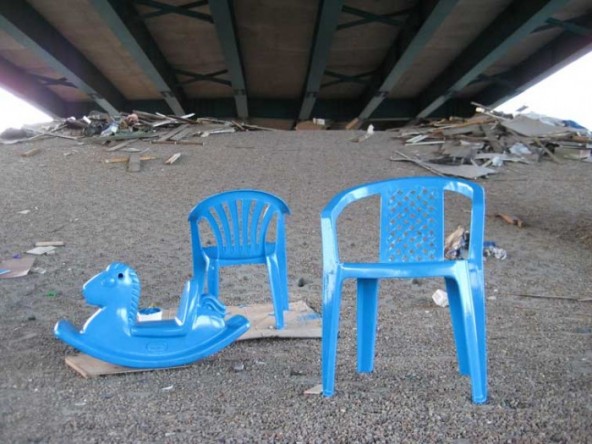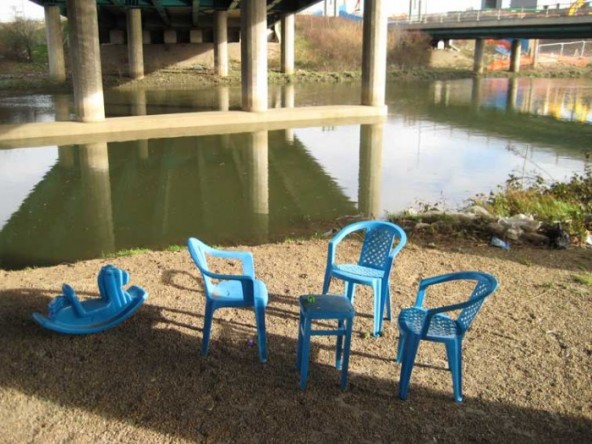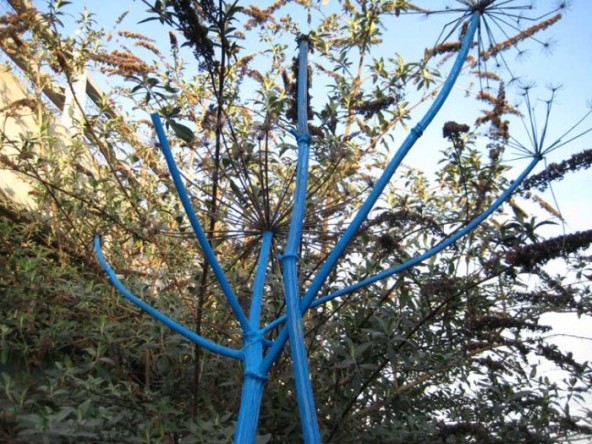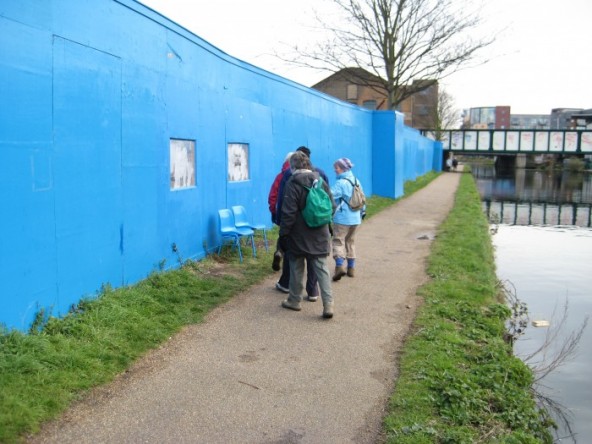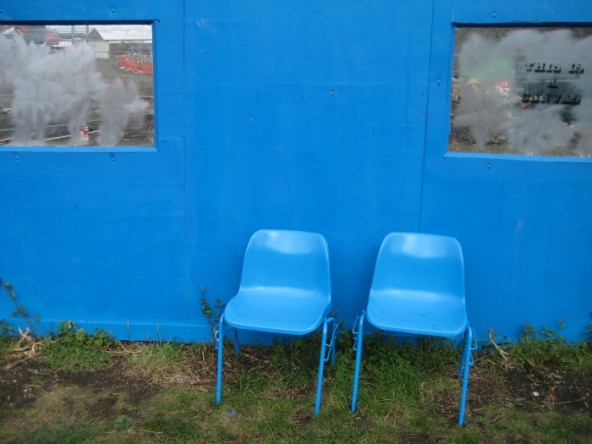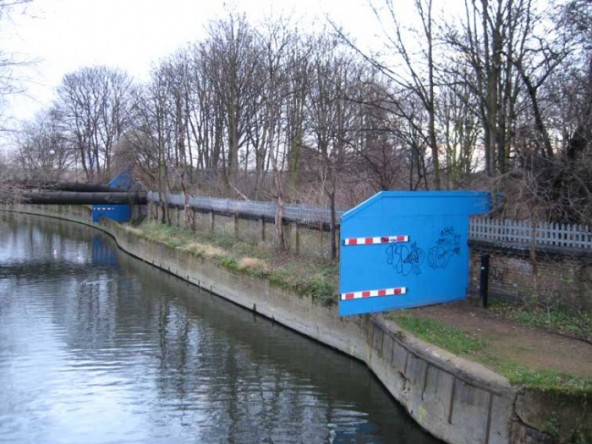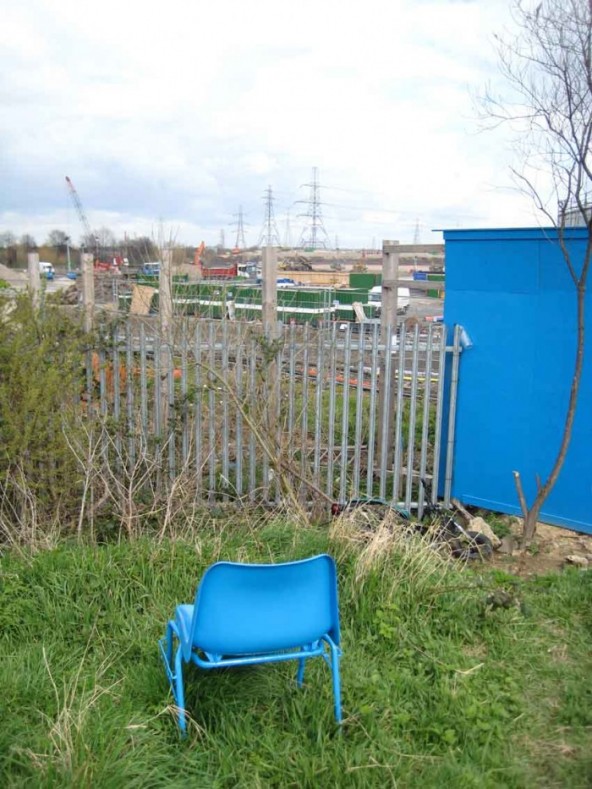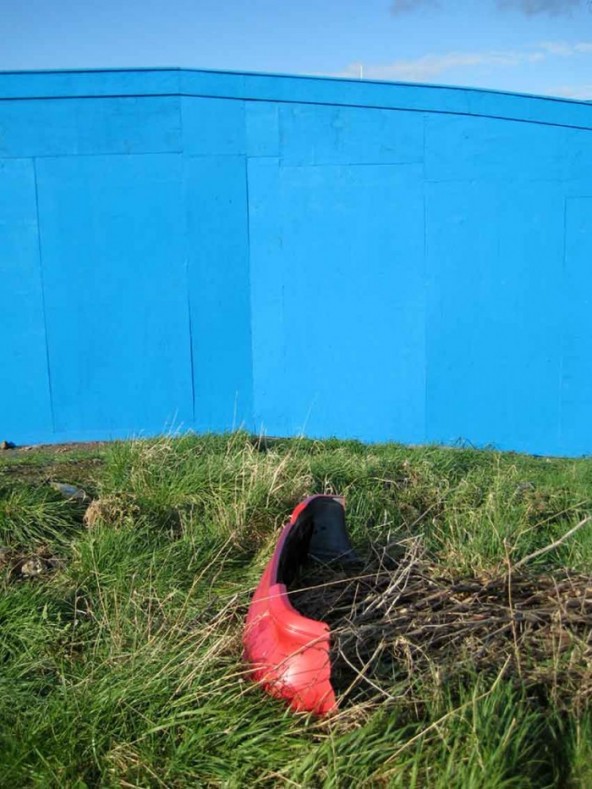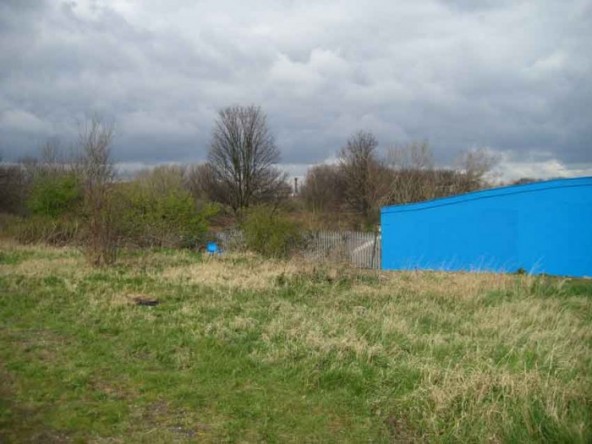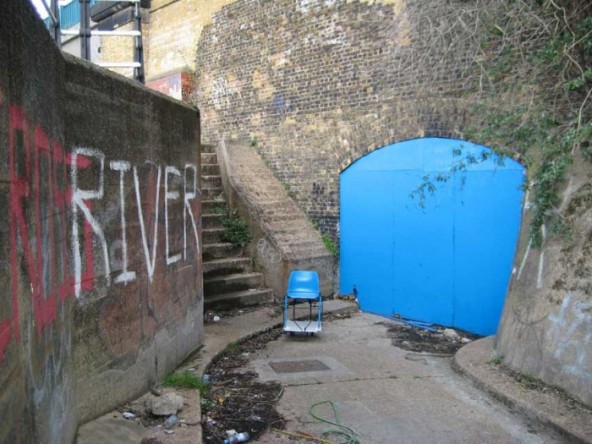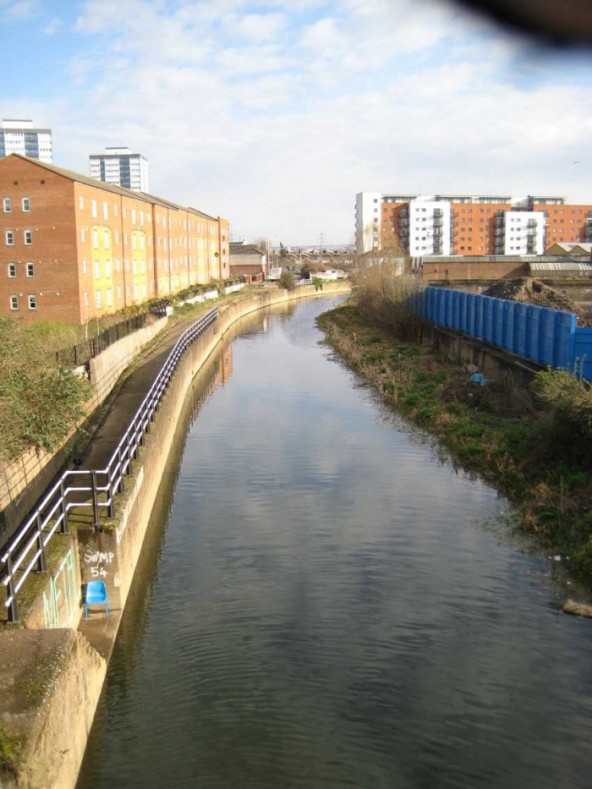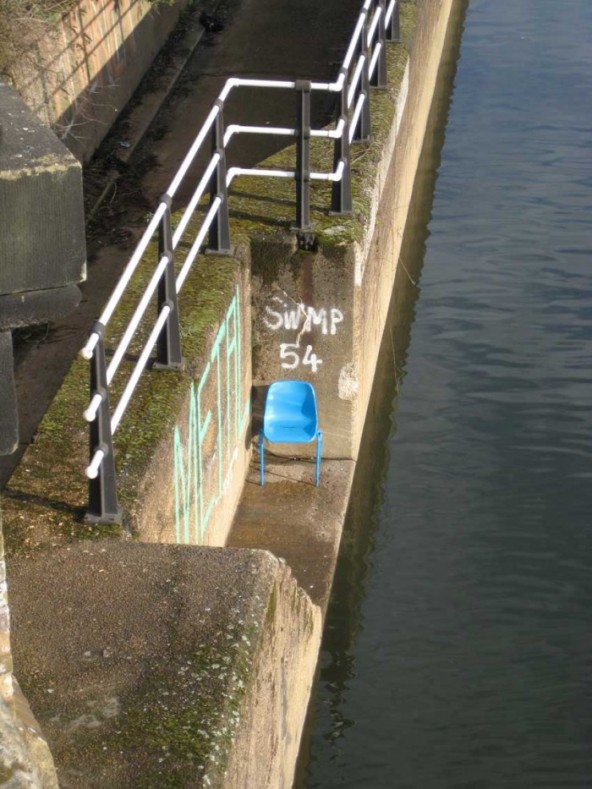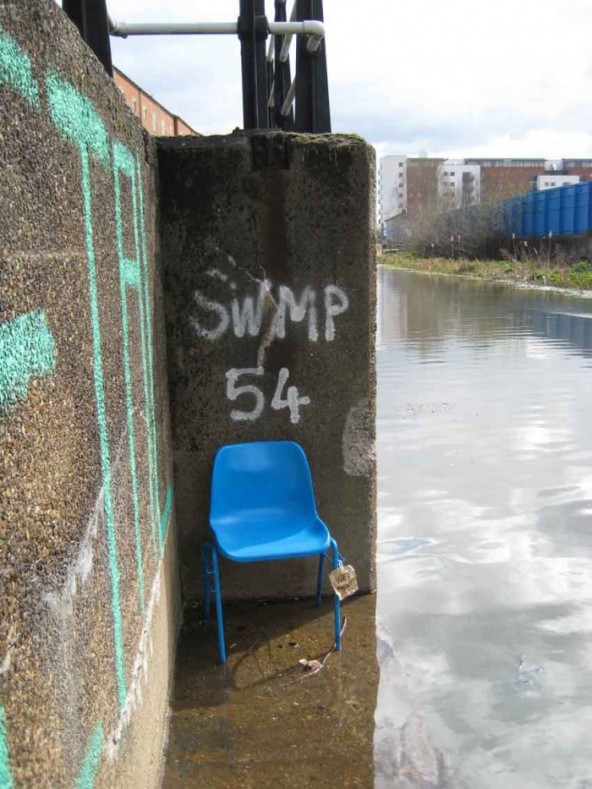All Aboard
by adaptive
created by.
Adaptive Actions
location.
london
keywords.
Creating extensions to the Olympic Blue Wall by painting objects found in the vicinity.
December 2007 - April 2008
All aboard video
The Olympic blue wall erected in September 2007 around the building site, measures 11 miles long creating new boundaries and reducing access to outlining areas. Existing roads, bike paths have been blocked. Londoners and mostly nearby residents must often travel several additional miles to reach the other side of the enclosed area. The chosen colour, the opaqueness and sheer size of the wall have attracted a lot of attention and criticism. Graffiti and stickers appear regularly on the surface of the wall. To remove these frequent and various forms of visual expression ? of protest for the most part ? from the surface, several employed workers regularly inspect and repetitively strip and repaint the 10-foot-high wooden barrier.
One day, while observing the site and doing a routine walk around the perimeter, I found lying on the ground, on the edge of the wall, a discarded bucket of the Olympic blue paint (called All Aboard). Taking in consideration that possibly 'nothing but blue could or would survive' on the wall, the 'All Aboard' adaptive action was developed to test if unplanned additions and extensions to and around the wall would survive if they were blue and, if so, for how long? In the vicinity of the bold and well-maintained blue wall lies an incredible quantity of rubbish deposited by passers-by, left over from abandoned constructions, some from the Olympic site demolitions. Simultaneously, while the structure is routinely maintained blue, surrounding rubbish and abandoned objects such as chairs, toys, tools, stools, tables?are progressively painted blue on the outskirts of the Olympic wall. While others look for graffiti and stickers I look for interesting objects to fix, reuse and relocate or to just reveal their existence or question their prolonged abandonment.
Through this repetitive activity, imitating a similar action done by others ? walking around the Olympic perimeter and painting in blue ? I progressively discover the life around the site, its concealed aspects.
All Aboard is an action which questions the status and character of the wall, the relation of things to context, the making and maintenance processes. It is meant to reflect on what is missing, on what was done, and initiate thought on what could be done through alternative ways in the present and the future. How can structures, even those restricting access, become permeable to change and accept existing realities, appropriations and support expression? Can the Olympic wall become more then what it currently is, i.e. less about self image, but, on the contrary, a representation of the outside, where Londoners currently live? How can we give meaning to important periods of transitions such as the four-year Olympic construction site ? which, even if temporary, defines our experience and memory of the city, is part of the legacy of the games? While much needed reflection has been given to the life of Olympic structures after the games (to post-production), very little attention has been given to the present and the four previous construction years that are an integral part of the Legacy of the Olympics which does, indeed, start today, now.
December 2007 - April 2008
All aboard video
The Olympic blue wall erected in September 2007 around the building site, measures 11 miles long creating new boundaries and reducing access to outlining areas. Existing roads, bike paths have been blocked. Londoners and mostly nearby residents must often travel several additional miles to reach the other side of the enclosed area. The chosen colour, the opaqueness and sheer size of the wall have attracted a lot of attention and criticism. Graffiti and stickers appear regularly on the surface of the wall. To remove these frequent and various forms of visual expression ? of protest for the most part ? from the surface, several employed workers regularly inspect and repetitively strip and repaint the 10-foot-high wooden barrier.
One day, while observing the site and doing a routine walk around the perimeter, I found lying on the ground, on the edge of the wall, a discarded bucket of the Olympic blue paint (called All Aboard). Taking in consideration that possibly 'nothing but blue could or would survive' on the wall, the 'All Aboard' adaptive action was developed to test if unplanned additions and extensions to and around the wall would survive if they were blue and, if so, for how long? In the vicinity of the bold and well-maintained blue wall lies an incredible quantity of rubbish deposited by passers-by, left over from abandoned constructions, some from the Olympic site demolitions. Simultaneously, while the structure is routinely maintained blue, surrounding rubbish and abandoned objects such as chairs, toys, tools, stools, tables?are progressively painted blue on the outskirts of the Olympic wall. While others look for graffiti and stickers I look for interesting objects to fix, reuse and relocate or to just reveal their existence or question their prolonged abandonment.
Through this repetitive activity, imitating a similar action done by others ? walking around the Olympic perimeter and painting in blue ? I progressively discover the life around the site, its concealed aspects.
All Aboard is an action which questions the status and character of the wall, the relation of things to context, the making and maintenance processes. It is meant to reflect on what is missing, on what was done, and initiate thought on what could be done through alternative ways in the present and the future. How can structures, even those restricting access, become permeable to change and accept existing realities, appropriations and support expression? Can the Olympic wall become more then what it currently is, i.e. less about self image, but, on the contrary, a representation of the outside, where Londoners currently live? How can we give meaning to important periods of transitions such as the four-year Olympic construction site ? which, even if temporary, defines our experience and memory of the city, is part of the legacy of the games? While much needed reflection has been given to the life of Olympic structures after the games (to post-production), very little attention has been given to the present and the four previous construction years that are an integral part of the Legacy of the Olympics which does, indeed, start today, now.
